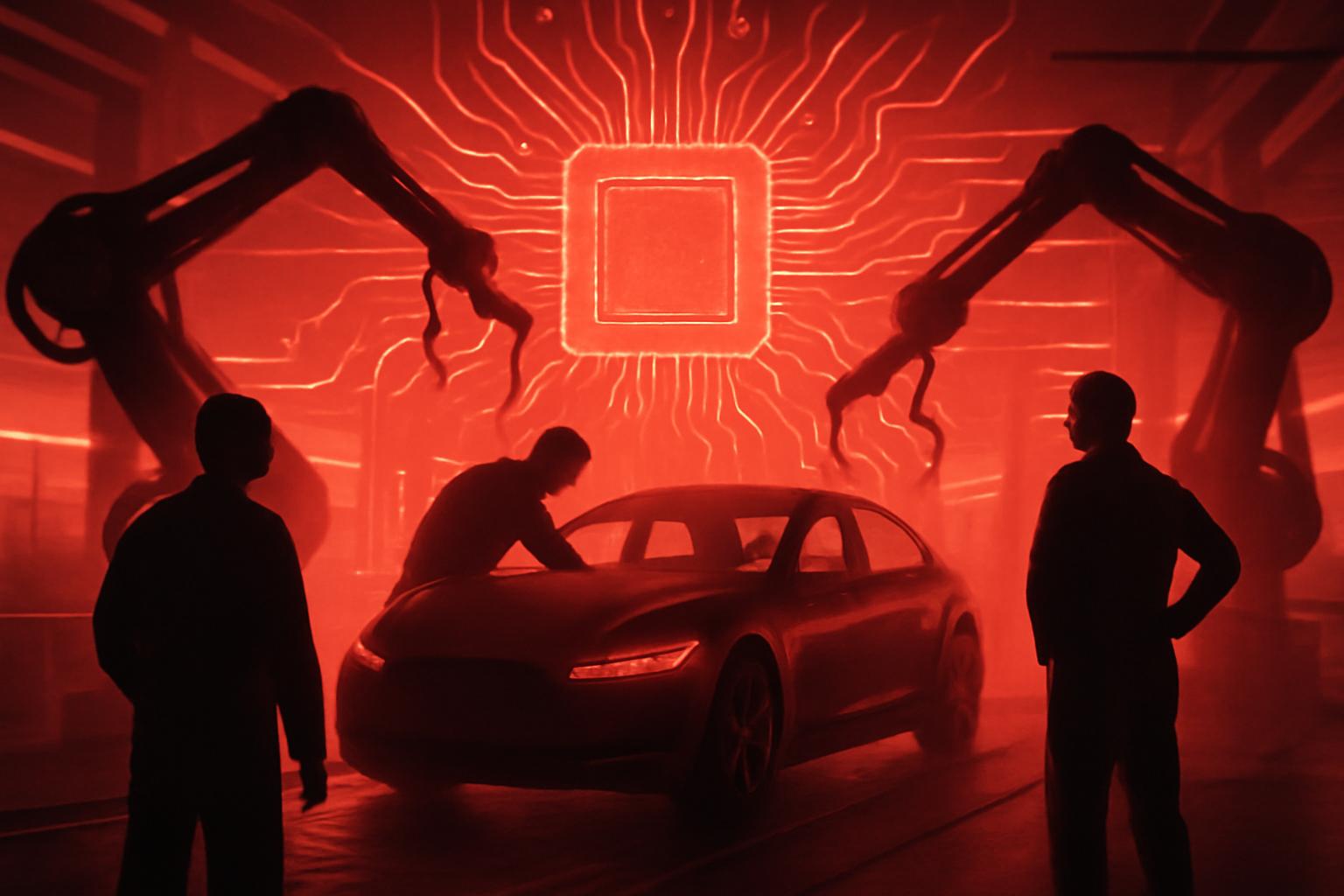Auto Industry Faces Renewed Semiconductor Shortage Amid Geopolitical Strains
Global automakers are confronting fresh production challenges triggered by a semiconductor chip shortage linked to escalating geopolitical tensions between the U.S. and China. The crisis centers on Dutch-based chipmaker Nexperia, whose ownership and export controls have become a flashpoint in this unfolding supply chain disruption. Honda Motor is the first major automaker to announce production cuts this week, impacting its North American assembly plants. The shortage stems from chips supplied by Nexperia, a Dutch company owned by Chinese firm Wingtech Technology, now subject to export restrictions following intervention by the Dutch government.
Automakers Activate Crisis Management ‘War Rooms’
Industry leaders have mobilized dedicated teams, often dubbed ‘war rooms,’ to manage the semiconductor shortage in real time. Stellantis CEO Antonio Filosa described the situation as an “industrywide global issue,” with daily efforts underway to extend chip inventory and mitigate production impacts. Volkswagen has indicated it has limited time before the shortage affects its production line, while other major manufacturers continue to monitor supply levels and explore alternative sourcing strategies.
“The chip situation from Nexperia, we have a cross-functional ‘war room’ in the building where I’m sitting that has this as [a] primary job,” said Stellantis CEO Antonio Filosa. “Every day we are pushing actions and projects to extend our period. There is a day-by-day management of what is an industrywide global issue.”
Dutch Government’s Takeover Sparks Export Restrictions
The recent disruption originated when the Dutch government assumed control of Nexperia, citing national security concerns raised by the U.S. The government feared that critical semiconductor technology could become inaccessible during emergencies. In response, China blocked exports of Nexperia’s finished semiconductor products, intensifying supply chain risks for European automakers reliant on these components. Nexperia specializes in producing high-volume legacy chips integral to vehicle functions such as windshield wipers, window controls, and basic electronics. According to S&P Global Mobility, these chips have limited alternative suppliers, heightening the risk of production interruptions.
“This means assembly line stoppages might only be days away,” warned ACEA Director General Sigrid de Vries. “We urge all involved to redouble their efforts to find a diplomatic way out of this critical situation.”
Production Cuts and Industry-Wide Concerns
Honda’s production reductions affect all major North American facilities, including assembly plants across the U.S., Canada, and Mexico. The company described the situation as “fluid,” emphasizing ongoing adjustments to manage part availability. Other automakers, including Ford, General Motors, Volvo, and Mercedes-Benz, have acknowledged the issue publicly. They emphasize the political nature of the crisis and the urgent need for diplomatic solutions to avoid significant fourth-quarter production losses.
“It’s an industrywide issue. A quick breakthrough is really necessary to avoid fourth-quarter production losses for the entire industry,” said Ford CEO Jim Farley. “Automakers have gotten really good at maximizing component purchases, but this remains a political issue.”
Mercedes-Benz CEO Ola Källenius echoed the sentiment, highlighting Europe’s precarious position amid U.S.-China tensions and the political complexities underlying the supply disruption.
Automakers Explore Alternative Sourcing and Market Solutions
In response to the chip shortage, companies have established cross-functional teams to explore alternative purchasing channels, including open market acquisitions and partnerships with major suppliers. This approach aims to sustain production continuity despite volatile supply conditions. The Motor & Equipment Manufacturers Association (MEMA) underscored the critical role of chips and diodes in automotive systems, noting that even the absence of a single component can halt vehicle manufacturing.
FinOracleAI — Market View
The semiconductor shortage triggered by geopolitical interventions in Nexperia’s operations presents a significant risk to the global automotive supply chain. The situation underscores the vulnerability of relying on concentrated chip suppliers amid rising international tensions.
- Opportunities: Accelerated diversification of semiconductor sourcing; increased investment in domestic chip manufacturing; enhanced cross-industry collaboration on supply chain resilience.
- Risks: Prolonged production halts affecting vehicle availability and revenues; heightened geopolitical volatility impacting supply chains; potential inflationary pressures on automotive prices.
Impact: The chip shortage driven by political and security concerns is poised to disrupt automotive production in the near term, with significant consequences for manufacturers and consumers unless diplomatic resolutions are swiftly achieved.













